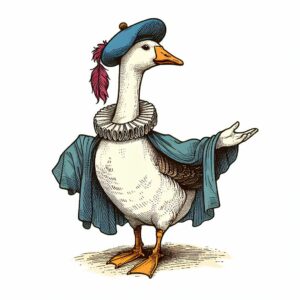Of course, by that I literally mean, let’s talk about the different Shakespeare plays we all saw in the HBO Max series Succession.
Did I fool anybody?
I know, I’m late to the party. I tried watching Succession back when it was new, but my attention drifted to Ted Lasso. I knew that Succession was supposed to be this King Lear meets Fox News type of thing, but I really have to get myself in the mood to sit through that kind of doom and gloom,
Well, we finally saw down and watched all four seasons. So let’s talk about it. It’s been long enough, so I’m not going to bother warning about spoilers. But I’m also not going to tell you who ultimately gets the kingdom, either.
Is It King Lear?
The comparison here is the most obvious one. Three children all vie to control their father’s kingdom. The thing is, that’s where the comparison ends. There’s no Cordelia here. All the children are equally horrible, both to each other and to their father. For his part, Brian Cox (who can hold his own against real Shakespeare material any day) treats them equally horribly as well. There’s no Kent, no Fool, no descent into madness. Could you stretch it a little bit and go looking for those things? Sure, I guess. Has Roman got some Cordelia in him? Are Frank and Carl supposed to be some sort of Fools? I think that’s stretching it.
So What Is It?
Just like how the Lion King is as much Henry IV as it is Hamlet, we can say the same about Succession. Let’s look at a few:
- Julius Caesar – A fairly obvious one, to start. You don’t get to amass that kind of power without making plenty of enemies, no matter how much you may think you’re the good guy doing the right thing, The biggest question is how many of them ultimately are there, and which of your friends will be the one that tips the scales in their favor?
- Coriolanus – Listen, if you put in the work and rise up the ranks to become the hero of Company A, and then you’re unceremoniously outcast from that Company that you helped build, what’s the logical thing to do? Why, go and join their sworn enemy and try to take them down, of course.
- Hamlet – I read this one somewhere. I didn’t pick up on it myself, but there’s an argument to be made that later in the series, there’s a Fortinbras character making his steady march on Denmark, ready to waltz in and pick over the pieces after they destroy themselves. I was too busy being impressed by how much he resembled Elon Musk.
Mostly, though, it’s Macbeth. I wouldn’t have said that until the final episode, but really, for those who have seen it and know what I’m talking about? The show ended and I said, “So, it’s Macbeth. That was totally Macbeth.”
What other influences did you see? People want to say Richard III for all the “I’ll take out anybody that gets in my way, including family members,” which I suppose is true. Are there any plays that aren’t about ruthless leaders who will do anything to win?





